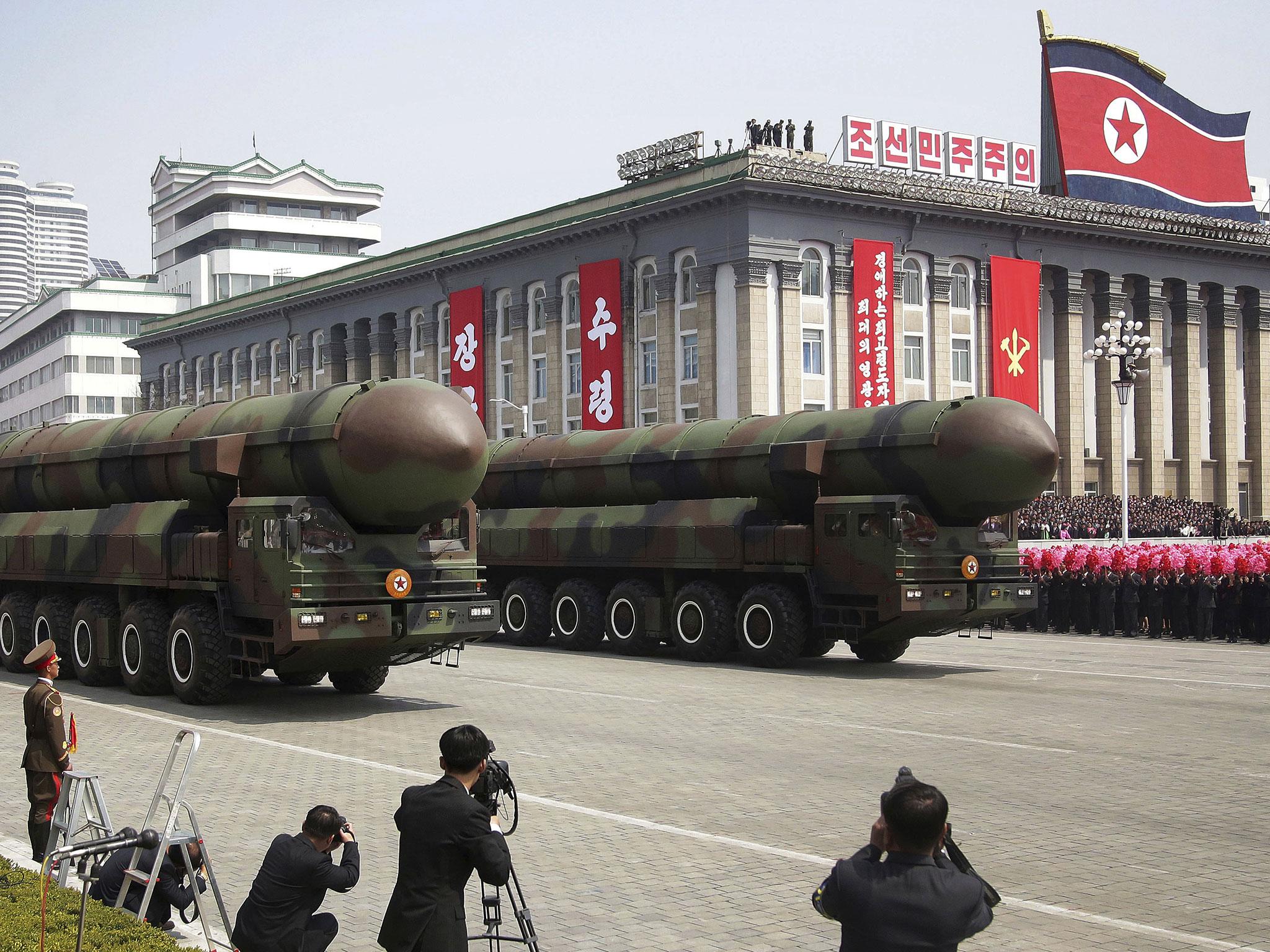North Korea near to developing long-range missiles capable of striking United States, warns US Pacific commander
'One of these days soon, he will succeed'

Your support helps us to tell the story
From reproductive rights to climate change to Big Tech, The Independent is on the ground when the story is developing. Whether it's investigating the financials of Elon Musk's pro-Trump PAC or producing our latest documentary, 'The A Word', which shines a light on the American women fighting for reproductive rights, we know how important it is to parse out the facts from the messaging.
At such a critical moment in US history, we need reporters on the ground. Your donation allows us to keep sending journalists to speak to both sides of the story.
The Independent is trusted by Americans across the entire political spectrum. And unlike many other quality news outlets, we choose not to lock Americans out of our reporting and analysis with paywalls. We believe quality journalism should be available to everyone, paid for by those who can afford it.
Your support makes all the difference.North Korea could soon develop long-range missiles capable of striking the United States, the top US commander in the Pacific has warned.
Admiral Harry Harris told the House Armed Services Committee he believed Pyongyang's threats against the US needed to be taken seriously.
"Just as Thomas Edison is believed to have failed 1,000 times before successfully inventing the light bulb, so, too, Kim Jong-un will keep trying," he said.
"One of these days soon, he will succeed."
North Korea's growing nuclear and missile threat is perhaps the most serious security challenge facing President Donald Trump.
Admiral Harris said the Terminal High Altitude Area Defence (THAAD) system would be made operational within days, and said any North Korean missile fired at US forces would be destroyed.
"If it flies, it will die," he told the committee.
He warned that while the defences of Hawaii were sufficient for now, they could one day be overwhelmed.
"I don't share your confidence that North Korea is not going to attack either South Korea, or Japan, or the United States... once they have the capability," the Admiral said.
Washington and Pyongyang have stepped up warnings to each other in recent weeks amid concerns Pyongyang may soon conduct a sixth nuclear bomb test.
Washington has said all options are on the table, including military strikes, but officials have stressed the current focus is on tightened sanctions on North Korea, which are expected to be discussed at a UN Security Council meeting on Friday chaired by US Secretary of State Rex Tillerson.
While North Korea has yet to test a missile capable of reaching the United States, experts say it could have the capability some time after 2020
US officials have warned a conflict with North Korea could have a devastating effect on ally South Korea and US troops based there, a point Pyongyang underscored by its largest ever artillery drill to mark the foundation of its military.
Admiral Harris conceded that North Korean retaliation to any US strikes could cause many casualties in South Korea, but added that there was the risk "of a lot more Koreans and Japanese and Americans dying if North Korea achieves its nuclear aims and does what [North Korean leader Kim Jong-un] has said it's going to do."
North Korea has vowed to strike the United States and its Asian allies at the first sign of any attack on its territory.
It comes after the former US ambassador to China warned a US strike on North Korea "would have absolutely cataclysmic, disastrous consequences."
Join our commenting forum
Join thought-provoking conversations, follow other Independent readers and see their replies
Comments